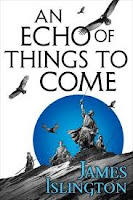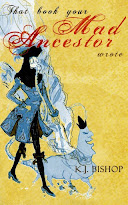Not an easy read, but a good one, and obviously worth its pulitzer prize. The writing style is unique, you're discovering the story through the eyes of an author researching and writing a novel about his grandmother. There's an occasional nod to the novelty of this style in the prose itself:
"In this", said Susan, as if in a novel, "I can consult no one but myself"
Our modern-day author uses a wheelchair and requires care in the home. The description of that care is actually quite interesting on its own and beautifully written, capturing the profound need on behalf of Lyman, the delicious relief of Ada's help, and the companionship she provides.
This quote captures the essence of the novel, and Lyman's pursuit of understanding of his grandmother's life:
Rodman is surprised. So am I, actually–I have never formulated precisely what it is I have been doing, but the minute I say it I know I have said it right. What interests me in all these papers is not Susan Burling Ward the novelist and illustrator, and not Oliver Ward the engineer, and not the West they spend their lives in. What really interests me is how two such unlike particles clung together, and under what strains, rolling downhill into their future until they reached the angle of repose where I knew them. That’s where the interest is. That’s where the meaning will be if I find any.
We see Susan evolve as a character, starting out at peak naivete as an aristocratic artist off on an adventure in the west, already a bit disappointed with her husband who didn't pay for her train ticket. Nonetheless, Oliver tries his best to "keep" her in some level of comfort and very much shielded from the harsh realities of living in a mining camp. But reality does start to leak in, starting with her realization that the mine treated workers essentially like prisoners, and her character begins to change.
Now, having had a glimpse of how rotten a string their lives were tied together with, she walked through them smiling a bright smile of fellowship and sympathy, a smile so rigid that her face hurt when she was finally past.
One constant is a continuous disappointment and resentment of her husband, who she sees as below her station:
But it is quite different about Oliver. I should not be surprised if you did not like him much, or disgusted with your taste.
With a sad, defensive certainty she saw that he lacked some quality of elegance and ease, some fineness of perception, that these others had. It seemed to her that he sat like a boy among men, earnest and honest, but lacking in nimbleness of mind.
She wanted more for him, and better, than he apparently wanted for himself.
Which ignites the quest of the author to try and figure out this relationship, why they stayed together, and what they meant to each other.
“A marriage,” I say. “A masculine and a feminine. A romantic and a realist. A woman who was more lady than woman, and a man who was more man than gentleman.
The harsh new, to white people, environment of the West and powerful corporations looking to exploit its resources, are pitted against Oliver and Susan who live through a series of disappointments and failures that are made more tragic due to the intense work, entrepreneurship, and struggle to survive they are undertaking.
Their goals are misaligned and things become more desperate, pitting them against each other:
She turned and saw him sitting on the bed, still feeling criticized. And he would not bend, that was what made her so resentful. He would not defend himself or justify himself. When she questioned him, wanting to be on his side, wanting to help work out a future for them both, he acted as if she were accusing him of deliberately, out of some stupid notion of honesty, throwing away their chance.
The impatience she created in him troubled her, and yet she had to resist his enthusiasm. For her own sake and the children’s sake and for his sake she had to be sensible. But she smiled, trying to express love even while she blocked his way; she felt that she begged, that he could not insist if she made it clear how much the prospect appalled her.
The ending is tragic and in keeping with the direction of their lives.
It's a very impressive novel, but I found myself bored in some places, which is why I'm taking off a star. Because of the narrative style the author occasionally uses the power to skip parts of their lives he found tedious during his "research". I think had that power been used a little more in some slow sections: IIRC the part in Santa Cruz dragged, despite me somewhat enjoying the early west view of a town that is now a sunny beachside tourist town.
4 stars
























